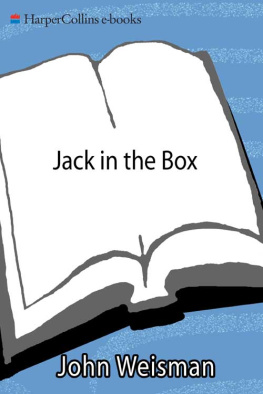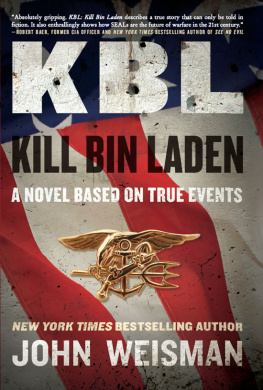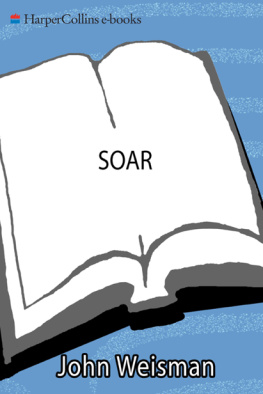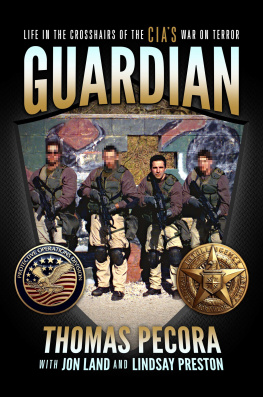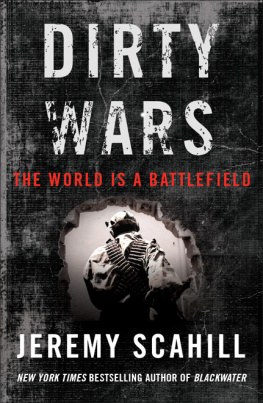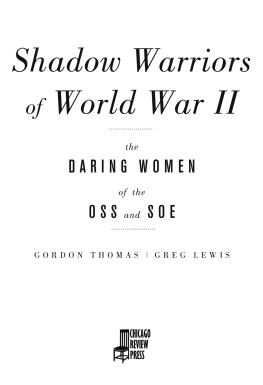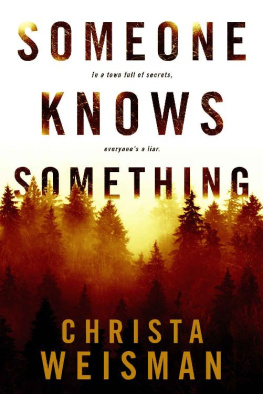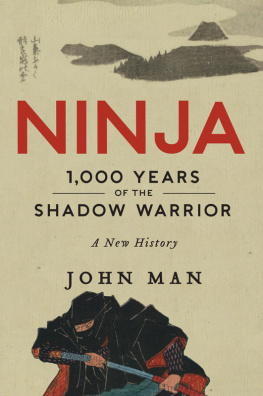
John Weisman
Direct Action
2005
For Mimi Crocker
and
For Lieutenant Colonel Richard Campbell, USMC (Ret.)
CAREERGUIDANCE101:
Big ops, big risks
Small ops, small risks
No ops, no risks.
Hand-lettered sign posted outside a cubicle
in the CTC (Counterterrorist Center)
at CIA headquarters, spring 2003
ON 21 SEPTEMBER 1995, AT 11:47A.M.,five senior officers from the Central Intelligence Agencys Directorate of Operations-the CIAs clandestine service-quietly gathered in room 4D-627A, one of the sensitive compartmentalized information facilities colloquially known as bubble rooms, on the fourth floor of the headquarters building at Langley, Virginia. The Agency was still reeling from the February 1994 arrest of Aldrich Hazen Ames. Ames, an alcoholic, money-hungry wreck of a career case officer, had betrayed dozens of Americas most valuable Russian agents to the KGB, resulting in their arrests and executions. He had also handed over many of CIAs technical tradecraft secrets and the identities of American undercover operatives.
Two of the clandestine officers at the meeting had been tasked with writing a Top Secret/Codeword damage assessment of the Ames debacle, a preliminary draft of which, at their peril, they were now sharing with three of their most trusted colleagues.
The assessment was grim. One had, it said, to assume that CIA had been completely penetrated because of Amess treason. The Agency, therefore, was now transparent. Not only to the opposition, which still included Moscow, but to all of Moscows current clients, including Libya, Syria, Sudan, Iraq, and-equally if not more critical-to the transnational terrorist organizations supported by those states. Transparency meant that the entire structure of the Directorate of Operations had to be considered as compromised; that every operation, every agent, every case officer was known to the opposition and its allies.
The only way to ensure that the clandestine service could survive in the coming years, the seniormost of the report writers suggested to his colleagues, would be to build a whole new and totally sterile spy organization inside CIA-acovert clandestine service within theovert clandestine service. But such a utopian solution, all five knew, would be impossible to achieve. The current director of central intelligence, John M. Deutch, would never allow it. Deutch, a tall, bumbling, angular, bookish MIT professor of chemistry who had served as undersecretary of defense, had been sent over from the Pentagon the previous May to clean CIAs post-Ames house. Instead of selecting savvy advisers to help ease his way into Lang-leys unique culture, the new director-himself a neophyte in matters of spycraft-brought with him as his closest aides two individuals neither of whom had any operational intelligence experience.
Deutchs executive director was Nora Slatkin, a presidential-appointee assistant secretary of the Navy. His deputy and right arm was George John Tenet, an NSC staffer whod toiled on Capitol Hill for Senator David Boren among others. It didnt take more than a few weeks for the great majority of seasoned intelligence professionals of CIAs clandestine service, the Directorate of Operations or DO, to detest all three. The situation was made even worse when Deutch appointed David Cohen, a DI (Directorate of Intelligence) reports officer, to head the DO. Cohen, the corridor gossip went, absolutelydetested spying and those who did it.
So no one was surprised that it took only a few months for Deutch and his associates to promulgate a series of orders that, in effect, prevented CIAs clandestine service fromspying. Under the new rules of engagement, every agent who had a criminal record, or was suspected of human rights violations, or who might be involved in any kind of criminal or terrorist activity, was to be jettisoned. Dumped. Ditched. Discarded. Their agent networks were to be disassembled.
By the 21 September meeting, more than half of CIAs foreign agents had been struck from the rolls and their names erased from BigPond, CIAs computer database run by Nora Slatkins administrative division. More than fifty productive agent networks in Europe, the Middle East, South America, and Asia were summarily disbanded. Unable to recruit the sorts of unsavory but productive individuals it had targeted in the past, American intelligence quickly found itself going deaf, dumb, and blind. After the BigPond debacle, the old hands started referring to Slatkin as Tora-Tora Nora.
And voting with their feet. By summers end of 1995, more than 240 experienced case officers-40 percent of those with more than fifteen years of field experience-had resigned or taken early retirement. The Agencys Counterterrorism Center (CTC) had been eviscerated, with many of its physical and technical assets either eliminated altogether or handed over to other agencies, including CIAs detested rival, the Federal Bureau of Investigation. CTC operations at Rhine-Main airport, Frankfurt, where its European crisis-management crash team was forward-deployed, was shut down completely.
It wasnt long before it was proudly announced during a closed-door session of the House Permanent Select Committee on Intelligence (HPSCI) that the new CIA leadership was saving more than $3.6 billion annually by closing nine CIA stations in sub-Saharan Africa and CIAs bases1in half a dozen Western European cities. The rationale was that with the Cold War over, America didnt need to keep tabs on Soviet agents anymore and the Agency outposts in such places as Dsseldorf, Barcelona, Marseille, and Milan were superfluous.
Alan Martin, CIAs assistant deputy director for collection, couldnt get an appointment with Deutch or his deputy, George Tenet. So he finally corralled one of Tenets growing army of special assistants in the cafeteria. He explained that the bases could be used to keep an eye on the growing number of Islamist radicals living in Germany, Spain, France, and Italy.
Martin was greeted with a blank stare.Islamist radicals? Who the hell cared about Islamist radicals living in Dsseldorf? We are into saving money here. Get with the program, Al, he was told, or get lost.
But that wasnt the worst part. The worst part was the tectonic shift taking place in the quality of the DOs people. The situation wasnt new: under previous directors William Webster and Robert M. Gates, DO had been forced to accept within its ranks analysts, reports officers, and secretaries, few of whom had either the inclination or the ability to spot, assess, and recruit agents to spy for America. The prissy Gates even had a politically correct term for it:cross-fertilization.
Now, under Deutch, Slatkin, Tenet, and Cohen, the vacuum left by the loss of experienced case officers was being filled by a growing torrent of unskilled, naive, risk-averse individuals who had no field experience. None whatsoever. Zip. Zilch. Zero. Analysts had already been appointed as chiefs of station in Tel Aviv, Riyadh, Nairobi, and Lisbon. A reports officer was running Warsaw. A former secretary with only six months of training had been made station chief in Kiev.Kiev, with Ukraines vast store of Soviet-era nuclear weapons. Jeezus, it was like appointing a hospitals chief file clerk to head its neurosurgical team.
12:26P.M. The five men in 4D-627A had more than a hundred years of combined intelligence work under their belts. Among them, there wasnt a region anywhere on the globe that they werent familiar with.
Next page

